Search Results
Showing results 501 to 520 of 676
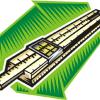
Slide Rules
Source Institutions
Learners make their own simple slide rules out of paper and learn how they work.
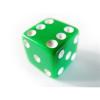
Nice and Nasty
Source Institutions
In this math game, learners throw dice and place the numbers in one of four boxes. Learners repeat this three more times and the learner with the largest four digit numbers is the winner.

Outrageous Ooze: Is It a Liquid or a Solid?
Source Institutions
This activity provides instructions for using cornstarch and water to make an ooze which has the properties of both a solid and liquid.

Tri, Tri Again
Source Institutions
Learners estimate how many small triangles will fill a larger shape. Then they use a triangle stamp (or stencil made from a file folder) to fill the larger shape with triangles.
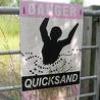
COSI Quicksand
Source Institutions
In this chemistry experiment, learners get to make a very bizarre substance using corn starch and water. Is it a solid? Is it a liquid? Or is it a different kind of substance entirely?

Right Eye/Left Eye
Source Institutions
In this activity (3rd on the page), learners conduct a series of tests to find out which of their eyes is more dominant.
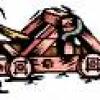
Catapult
Source Institutions
In this activity about transfer of energy, learners get to build their own catapult using nothing more than a plastic spoon and some tape.
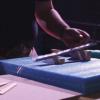
Chain Reaction II
Source Institutions
In this hands-on activity, learners use an assortment of (mainly household) items to complete Rube Goldberg-type challenges.
A Day in the Life of a San Francisco Native Animal
Source Institutions
In this activity, students will learn some key information about a San Francisco native animal and then write a firsthand account of their experience from the perspective of that animal in the time be

The Desert Blooms!
Source Institutions
This activity attempts to clear up the common misconception that deserts are always hot, totally dry, and uninhabitable.

Under Pressure
Source Institutions
In this simple activity, learners discover how a mere piece of paper can be used to hold up the weight of a heavy book.

Harmless Holder
Source Institutions
Have you noticed the plastic rings that are used to hold six-packs of soda? Those rings are great for carrying cans, but they're real trouble when they become trash that animals can get tangled in.

Give Me a Brake
Source Institutions
In this activity, learners explore the concept of how brakes can stop or slow mechanical motion.

Multitasking Mania
Source Institutions
In this activity, learners conduct scientific research on multitasking. Learners determine if multitasking with media while doing homework affects their ability to successfully complete the homework.
Pollution in Our Watershed
Source Institutions
By building a simple watershed with paper and markers and then using a spray bottle to simulate precipitation, learners will understand how pollution accumulates in our water sources, especially from
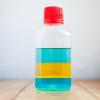
Klutz-Proof Density Column
Source Institutions
Making liquids of different densities to perfectly lay on top of each other can be a frustrating exercise. The Exploratorium created this activity as a fool proof way of making a density column.
Leaves: Designing Leaf Arrangements on a Branch
Source Institutions
In this hands-on activity, learners investigate the functional design of leaves on a tree.
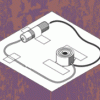
Hidden Alarm
Source Institutions
In this design challenge activity, learners invent a device that will make their friends and family ask, "What's buzzing?" Learners design an alarm with an on/off switch that is small enough to hide.
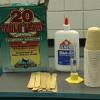
That's the Way the Ball Bounces: Level 1
Source Institutions
In this activity, learners prepare four polymer elastomers and then compare their physical properties, such as texture, color, size, and bounce height.
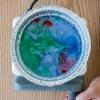
Pie-Pan Convection
Source Institutions
It's difficult to see convection currents in any liquid that's undergoing a temperature change, but in this Exploratorium Science Snack, you can see the currents with the help of food coloring.
